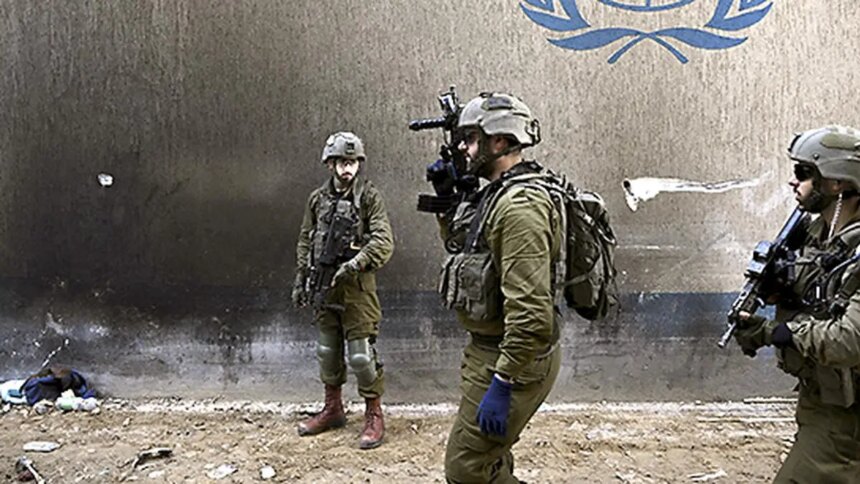Israel approved the plans on Monday to capture the entire Gaza Strip and remain in the Palestinian territory for an amount of time not specified, two Israeli officials said, a measure that, if implemented, would fix fierce operations there and probably.
The Israeli cabinet ministers approved the plan in an early morning vote, hours after the Israeli military chief said the army was calling tens of thousands of reserve soldiers.
The new plan, which according to officials were destined to help Israel achieve their war goals to defeat Hamas and release hostages in Gaza, also requires that hundreds of thousands of Palestinians move south of Gaza. That would probably be equivalent to its forced displacement and would exacerbate a serious humanitarian crisis.
A third person, a defense official, said that the new plan does not begin until after the president of the United States, Donald Trump, concludes his expected visit to the Middle East this month, allowing the possibility that Israel can accept a stop the fire in the meantime. The three officials spoke on condition of anonymity because they discussed the military plans.
Israel retired from Gaza in 2005 after a decades occupation and then imposed a blockade in the territory along with Egypt. Capture and Potentially Occupying the Territory Again for an Indefinite Periodes not only further dash Hopes for Palestinian State hood, It would embed Israel inside a population that is deeply hostile to it and raise testorys plans plans plans plans plans togans to’s togan plans plans plans plans to be Trans Togan’s plans plans plans plans plans plans plans plans plans plans plans plans plans plans plans plans plans plans plans plans plans plans plans plans plans plans plans plans plans plans plans plans plans plans plans plans Plans plans when you are considering how to implement Trump’s vision to take care of Gaza.
Since Israel finished a stop the fire with the militant group of Hamas in mid -March, Israel has unleashed fierce strikes in the territory that has killed hundreds. He has captured stripes of territory and now controls approximately 50 percent of Gaza. Before the truce ended, Israel stopped all humanitarian aid in the territory, including food, fuel and water, activating what is believed to be the worst humanitarian crisis in almost 19 months of war.
The war begged when the militants led by Hamas attacked southern Israel, killed 1,200 people and took around 250 hostages. Israel says that 59 captives remain in Gaza, although it is believed that about 35 are dead.
Israel’s offensive has displaced more than 90 percent of the population of Gaza and, according to Palestinian health officials, killed more than 52,000 people there, many of them women and children. Officials do not distinguish between combatants and civilians in their account.
The Palestinian Ministry of Health said on Monday that the bodies of 32 people killed by Israeli strikes have been taken to hospitals in the last 24 hours.
Israel is trying to increase the pressure on Hamas Israeli officials said the plan included the “capture of the strip and the celebration of territories.” The plan would also see that Hamas distributes humanitarian aid, a role that, according to Israel, strengthens the Gaza group rule. He also accuses Hamas or maintaining help to herself, without providing evidence. Humanitarian workers deny that there is a significant detour to help militants, saying that the UN monitors the distribution.
The officials said that Israel was in contact with several countries about Trump’s plan to take over Gaza and relocate its population, under what Israel has called “voluntary emigration.” This proposal has caused an extended conviction, even from Israel’s allies in Europe, and rights groups have warned that it could be a war crime according to international law.
Hamas officials did not return calls and messages in search of comments on the plans.
During the week, Israel has tried to increase the pressure on Hamas so that the group accepts its terms in the Alto El Fuego negotiations. But the measures do not seem to have remote Hamas from their negotiation positions.
The high the previous fire was destined to bring the parties to negotiate the end of the war, but that has remained difficult to reach. Israel says he won to agree to end the war until Hamas’ government and military capabilities are dismantled. Meanwhile, Hamas has sought an agreement that reduces ingenuity without accepting disarming.
Israel’s expansion announcement enraged the families of hostages who fear that any extension of the conflict endangers their loved ones. The hostages and the missing families forum, which supports families, urged Israel’s decision makers to prioritize hostages and ensure an agreement quickly.
At a meeting of the KNESET committee on Monday, Einav Zangaukeer, whose son Matan is being hostage, asked the soldiers to “not report for the reserve service for moral and ethical reasons.” Some reservists have indicated that they will refuse to serve in a war that they consider more and more as politically motivated.
Israel wants to prevent Hamas from handling the aid, the defense official said that the plan was “separate” of Hamas from help using private companies and using specific areas secured by the Israeli army. The official added that the Palestinians would be selected to prevent Hamas from accessing the aid.
According to a memorandum distributed among the aid groups and seen by Associated Press, Israel told the United Nations that it will use private security companies to control the distribution of help in Gaza. The UN, in a statement on Sunday, said it would not participate in the plan presented, saying that it violates its main principles.
The memorandum summed up a meeting between the Israeli defense agency in charge of coordinating the aid to Gaza, called Cogat, and the UN. It was written by an informed group about the meeting and sent on Sunday to help organizations.
According to the memorandum, under the Cogat plan, all the aid will enter Gaza through the crossing of Kerem Shalom, in approximately 60 trucks daily, and will be distributed directly to the people. Some 500 trucks entered Gaza every day before the war.
The memorandum said that facial recognition technology will be used to identify the Palestinians in logistics centers and text messages alerts will notify people in the area to collect help.
Cogat did not immediately respond to a comment request.
The UN accuses Israel of wanting to control aid as a ‘pressure tactic’ after Israel said he was going to affirm more control over the distribution of help in Gaza, the UN. The Office for the Coordination of Humanitarian Affairs sent an email to help slurred, urging the topic to “collectively maintain the line” and reject any “draconian restriction on humanitarian work.” The email, which Ocha sent on Monday to help groups and was shared with the AP, in addition, there are mechanisms to ensure that the aid does not deviate.
Previously, Oca said in a statement that the plan would leave large parts of the population, including the most vulnerable, without supplies. He said the plan “appears designed to reinforce the control of the elements that support life as a pressure tactic as part of a military strategy.” Help groups have said they oppose armed or uniformed personnel for distribution help that could potentially intimidate the Palestinians or put them at risk, and iron criticized the new plan.
Israeli officials “want to manipulate and militaris all help to civilians, which forced us to deliver supplies through centers designed by the Israeli army, once the government agrees to cross the crosses,” he would not participate in Jan Egend, by general mail of the Norwegians.
Hamas denounced Israel’s efforts to control the distribution of humanitarian aid in Gaza as a violation of international law.
In a statement on Monday, the militant group said that the effort “an extension of the starvation policy” is adopted by the Israeli government in Gaza.
Earlier this month, the notes appealed to several Israeli proposals on the distribution of aid and the help groups with the Conerns on them. In these documents, the groups expressed their fear that the Palestinians should recover the help of a small number of sites, forcing the family to move to help and put their safety at risk if large crowds met at the sites.
More like this
Posted on May 5, 2025










